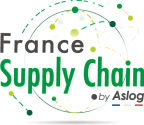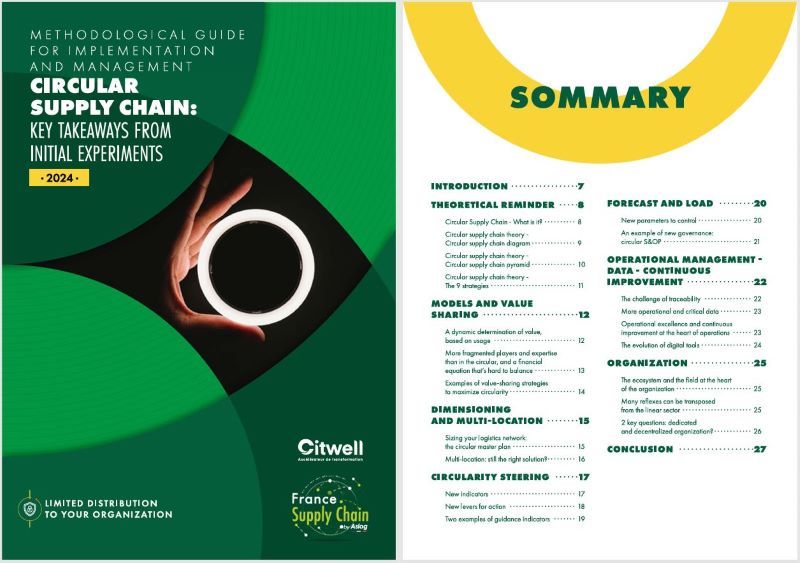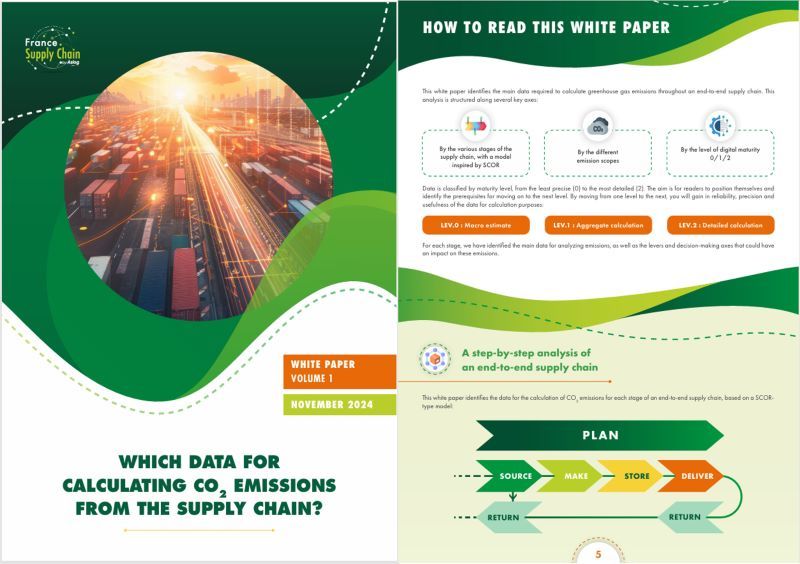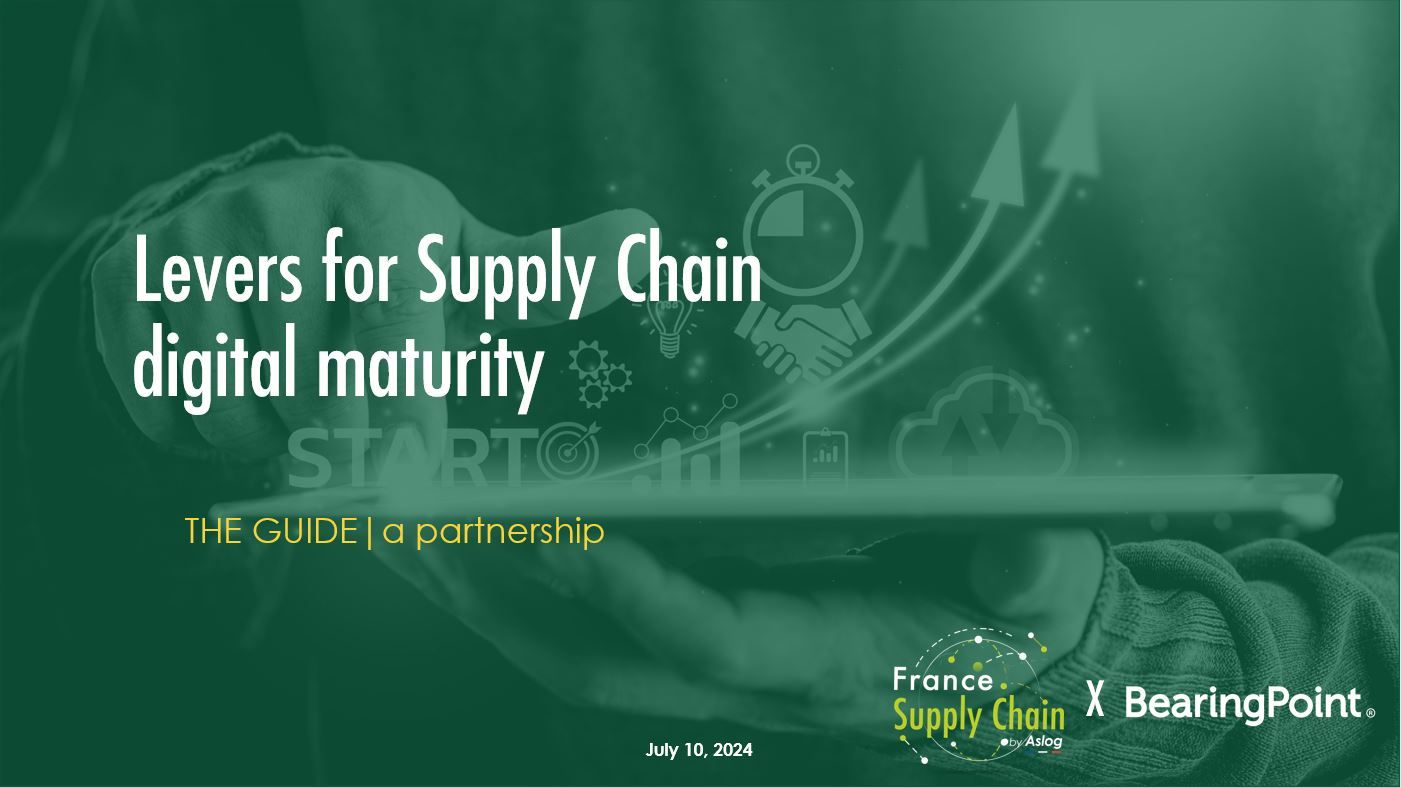langue : Anglais
Predictive AI to Enhance Inventory and Customer Service at Rexel
Écrit par Elorri THICOIPE le . Publié dans Non classé.
The Digital Twin: Demystification and Applications for the Supply Chain
Écrit par Elorri THICOIPE le . Publié dans Non classé.
Generative AI to Support Maintenance technicians
Écrit par Elorri THICOIPE le . Publié dans Non classé.
White paper on Supply Chain Resilience
Écrit par Elorri THICOIPE le . Publié dans Non classé.
An in-depth study that identifies the key determinants of resilience, particularly in operations and the Supply Chain.
To carry out this study, France Supply Chain by Aslog teamed up with Sopra Steria Next, a Sopra Steria consulting firm. The aim is to help companies understand how to prepare structurally for future shocks.
Key findings include :
- A lack of resilience in the face of crises – Overall corporate maturity index: 2.59 out of 4.
- Lack of supply chain visibility
- Ecological transition still too timid
- Investments in resilience still too reactive
- The supply chain, a strategic lever still under-exploited
- In a world faced with ever-increasing crises, business resilience has become a real strategic challenge.

Find out more with three interviews and expert feedback, as well as a list of outstanding studies on resilience.
- Mr Walid Klibi, Professor of Operations & Supply Chain Management, KEDGE BUSINESS SCHOOL & MIT Fellow
- Mr. Pierre-Yves Escarpit, Managing Director itm logistique alimentaire international
- Mr. Éric Laval, General in charge of the Joint Munitions Service (SIMU)
- Vincent Barale, Senior Vice President Supply Chain & Logistics, Louis Vuitton
Circular Supply Chain: Key Takeaways from Initial Experiments
Écrit par Elorri THICOIPE le . Publié dans Non classé.
Methodological Guide for Implementation and Management
Télécharger la version française ici
After a year of collaborative work, our guidance document is designed to help shippers and logistics professionals implement and manage circular supply chains.
“67% of companies plan to increase their investments in circularity over the next three years…
… and members of France Supply Chain are no exception!”
Anaïs Leblanc, Executive Partner at Citwell and project leader
This methodological guide draws on six workshops conducted by Citwell —a consulting firm specializing in operations and supply chain transformation—with members of France Supply Chain. The findings are structured around the following pillars:
- Value model and sharing
- Multi-locality sizing
- Forecasting and workloads
- Circularity management
- Operational management, continuous improvement & data
- Organization
To ensure the richness and robustness of the workshops, participating companies were carefully selected to represent a diversity of sizes, structures, and sectors.
This publication is the result of this collective effort, written collaboratively, and is just the beginning of the journey.
A huge thank you to Epalia, Michelin, Orange, Lizee, Rev Mobilities, LRPI, and Valused.
And to the contributors from Decathlon, Groupement Hospitalier de Territoire Grand Paris Nord Est, Manutan, Legrand, L’Oréal, OEMServices, Renault, Saint-Gobain, and Soroa.
Source: GAIA 2023 survey
WHICH DATA FOR CALCULATING CO2 EMISSIONS IN THE SUPPLY CHAIN?
Écrit par Elorri THICOIPE le . Publié dans Non classé.
Télécharger la version française à ce lien
White Paper Volume I
This 1st white paper assists in identifying the relevant data and level of precision needed to calculate CO₂ equivalent emissions across the entire Supply Chain. It also highlights initial levers to activate for decarbonization.
This analysis is organized along several key axes:
- the various stages of the Supply Chain;
- the different emission scopes;
- the level of digital maturity.
This publication is the result of the work carried out by the Digital Lab, enriched by contributions from its members, both operational and expert in the Supply Chain, as well as by carbon footprint assessment initiatives. A second volume will be published in 2025.
After presenting the group’s working methodology, explore the description of data categories and an analysis of the data required to calculate emissions across an end-to-end Supply Chain.
Download the tool using the following form
The Return of S&OP – Best Practices & Implementation
Écrit par Elorri THICOIPE le . Publié dans Non classé.
GENERATIVE AI FOR THE SUPPLY CHAIN – When and how can it be used ?
Écrit par Elorri THICOIPE le . Publié dans Non classé.
Levers for Supply Chain digital maturity
Écrit par Elorri THICOIPE le . Publié dans Non classé.
Télécharger la version française à ce lien
The objective of this document is to member companies tools (a guide and a grid) to :
1) Measure your current maturity of Supply Chain activities
2) Build an understanding of what advanced maturity levels mean and bring (what is possible)
3) Select the most appropriate level for the site / country to reach
4) Develop your roadmap
This assessment can be done at the level of each site or at the level of one country (Supply Chain focus).
Find out how to exploit the full potential of this tool in this video (application in the customs bonded warehouse, benefits, Level 5 testimonials, etc.).
Download the tool using the following form











